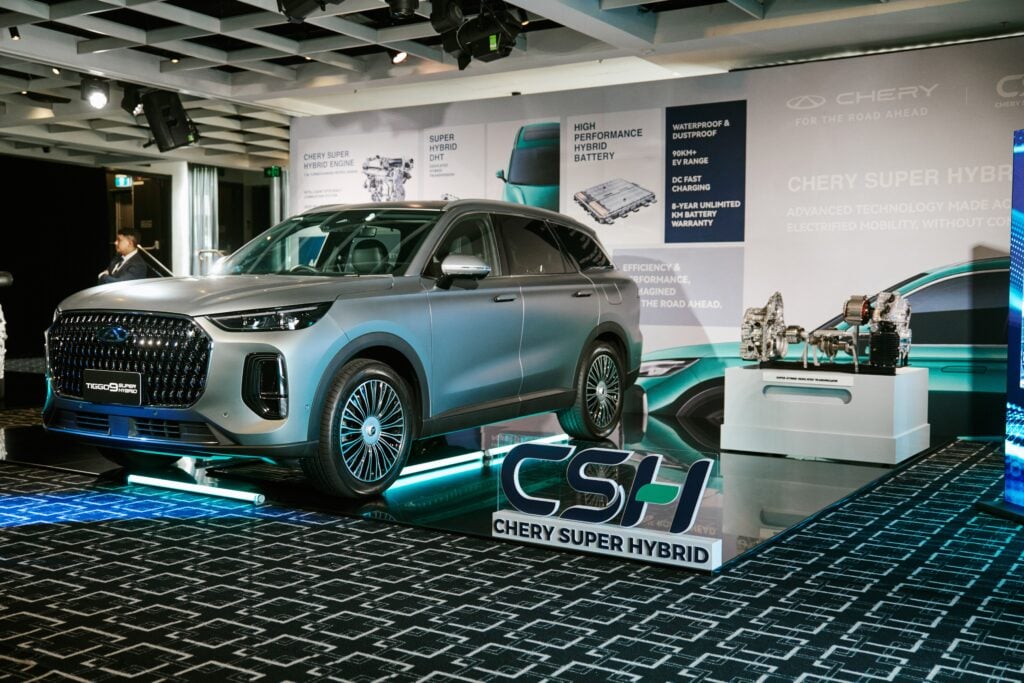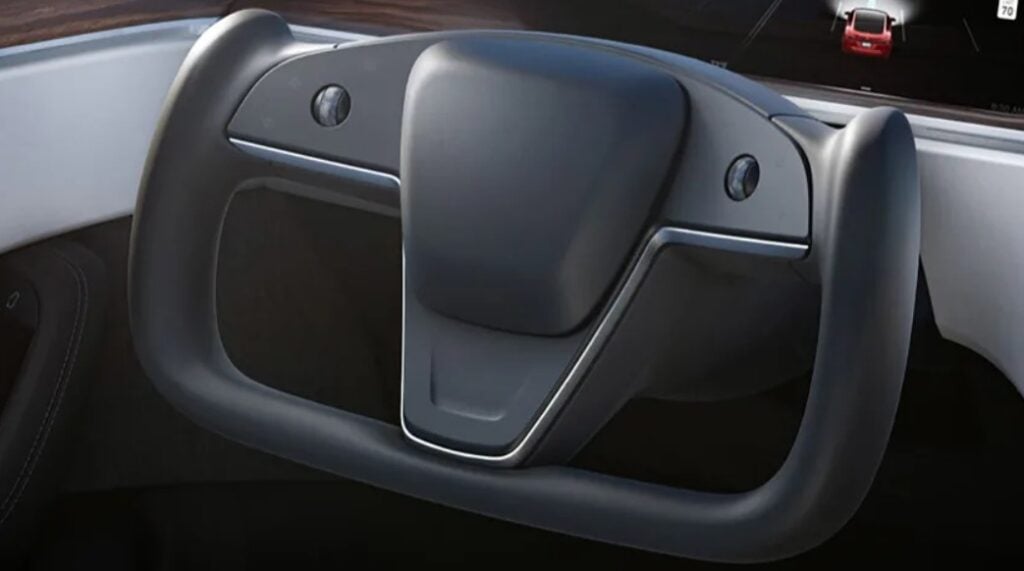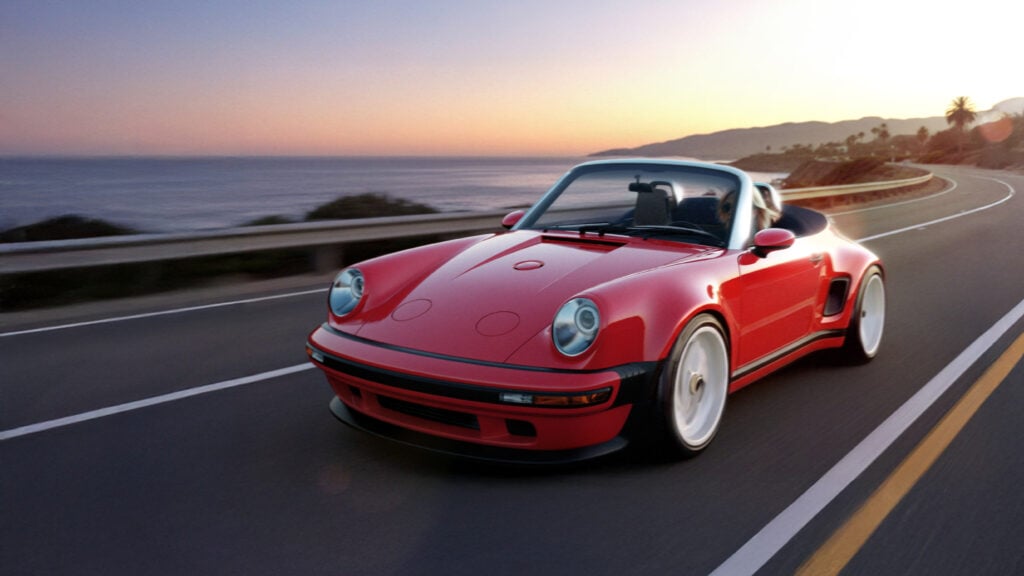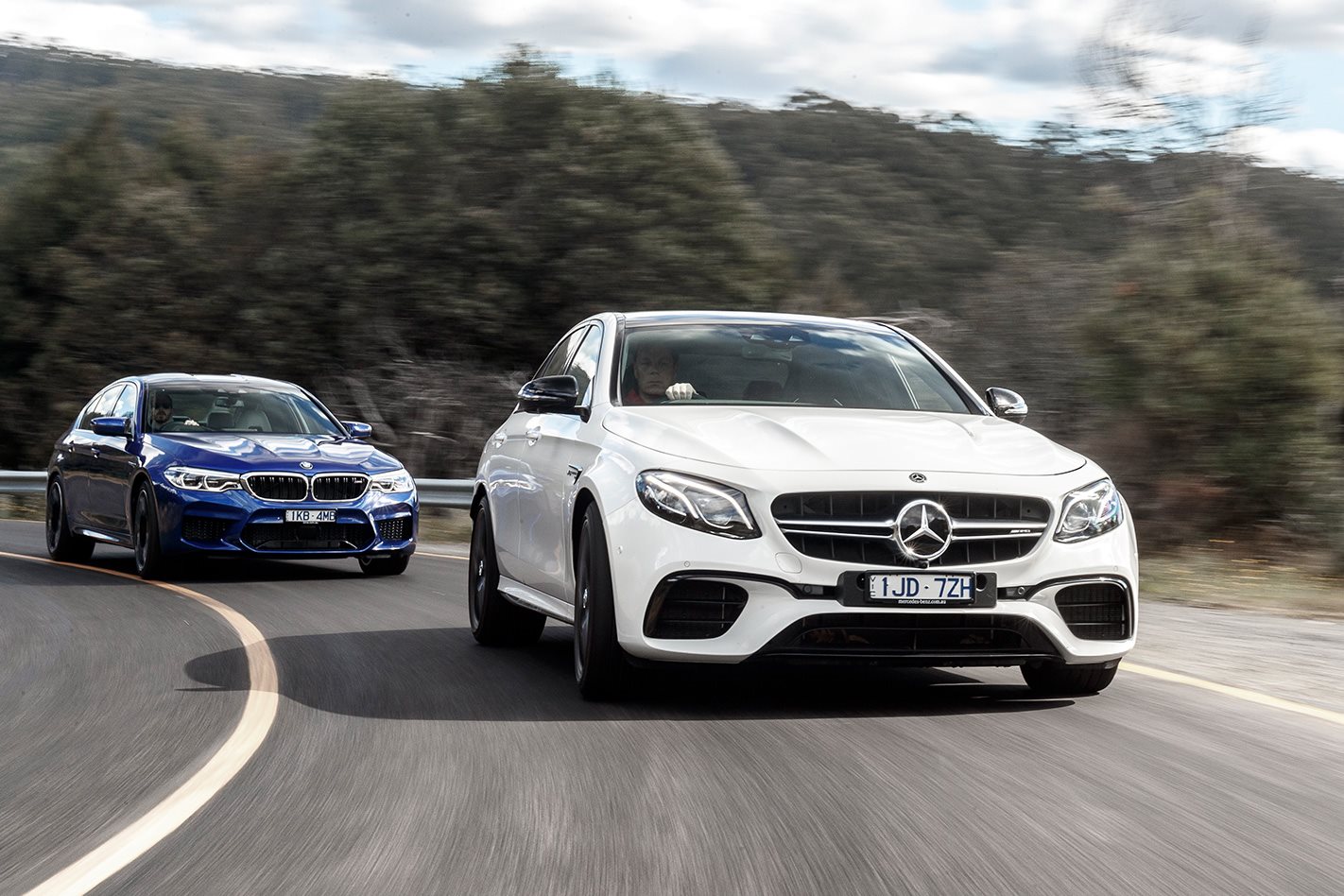
- German auto giants aiming to reach 60 million potential customers
- Merger includes partnerships in ‘last mile’ mobility
- BMW calls it “global game changer”
Almost a year ago, the Germans agreed to merge their mobility services into a single holding company, with a 50/50 split. And now, with a plan to both invest €1.1 billion ($1.74 billion), the details of the partnership have been made public.
With a focus on all-electric, autonomous, on-demand mobility; the services will be filed under five categories of joint ventures: Reach Now, Charge Now, Park Now, Free Now and Share Now.
Instead of just renaming everything and simplifying the companies, there are layers of layers of services, which, when combined, amass to 60 million customers globally. So let’s break each service down to see how multi-faceted and future-focused this merger gets.
Reach Now The newest service is Reach Now, a highly personalised network of city transportation and planning. This one is comprised of a former American car hire and ride-share app called ReachNow, and a transport and navigation app call moovel, which allows you to create an itinerary, book, pay and plan movements around a city.
Think of Reach Now as a one-stop shop for perusing every transport option in a city. That could mean users are able to use this service to hire a bike, buy a bus ticket, share a car, plan a trip and view all in a real-time and cashless system.
Charge Now Charge Now is a network of over 100,000 public charging points in 25 countries, and one of the fastest-growing networks of its kind in the world. While the website notes that Charge Now has a collaborative partner in Australia, the link directs users to a BMW landing page.
Park Now Park Now is a digital parking service made up of apps like ParkNow, RingGo, ParkMobile and Park-Line. These apps will offer users the power to locate, reserve, pay for and manage garages around the world.
BMW and Daimler say they’re banking that this pillar will help reduce traffic in urban areas. “The search for parking currently accounting for about 30 per cent of the traffic on urban roads,” they said. “Park Now is helping towns and cities to reduce traffic volumes, thereby helping to make city centres cleaner, healthier and more liveable.”
Share Now Share Now fuses both Daimler and BMW’s car share services, Car2Go and DriveNow. Before the merge, Daimler’s Car2Go was the largest car-sharing service in the world, which has 14,000 Smart and Mercedes-Benz vehicles on its fleet – the merger has bumped that up to 20,000 cars in 31 cities.
Free Now Free Now is made up of ride services like mytaxi, Kapten (formally known as Chauffeur-Privé), Clever Taxi and Beat – most of which operate only in Europe; as well as Hive, a new e-scooter company that appears to only be available in Lisbon for the moment.
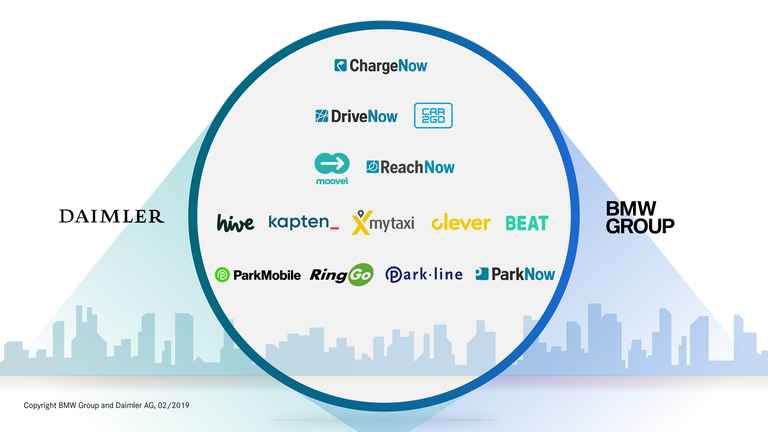
This merger is a huge, neon sign of the times and a good indication of where Daimler and BMW’s heads are at.
“We are creating a leading global game changer,” said Harald Krüger, Management Board Chairman of BMW AG. “The 60 million customers we already have today will benefit from a seamlessly integrated, sustainable ecosystem of car-sharing, ride-hailing, parking, charging and multimodal transport services…. these five services will merge ever more closely to form a single mobility service portfolio with an all-electric, self-driving fleet of vehicles that charge and park autonomously and interconnect with the other modes of transport.”
Dieter Zetsche, Chairman of the Board of Management of Daimler AG and Head of Mercedes-Benz Cars, echoed this sentiment.“By creating an intelligent network of joint ventures, we will be able to shape current and future urban mobility and draw maximum benefit from the opportunities opened up by digitalisation, shared services and the increasing mobility needs of our customers,” he said.
“Further cooperations with other providers, including stakes in startups and established players, are also a possible option.”
The global mobility ecosystem is an increasingly lucrative one. If current industry predictions are correct, this urban and future-focused shift in technology and transport will soon be generating revenues in the trillions – so it makes sense for Daimler and BMW to want to corner the growing market, not to mention, prepare for a more electrified future.
“Ultimately, we want to offer our customers as many options as possible for getting from A to B. In short, this is about driving, riding or being driven,” said Zetsche.Aside from sending a very clear message to Silicon Valley competitors like Uber, the merger demonstrates that these two giants are serious about a future beyond simply manufacturing cars. A billion-dollar chip on the table serious, to be exact.


